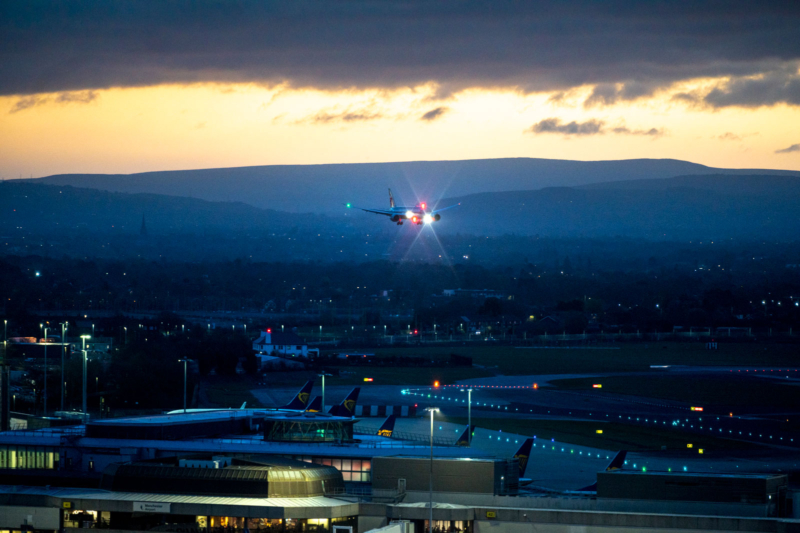Taking flight towards decarbonisation
28 July 2023NATS was recently named in the 2023 Financial Times-Statista Climate Leaders list, for the third consecutive year. The prestigious list names just 500 European companies that have achieved the greatest reduction in emissions intensity since 2016. So, what have we been up to, and what are our future commitments as we move towards a decarbonised aviation industry? Our newly published ‘Transition Plan’ compiles the journey so far and gives a preview of our ambitions for the next five years.
It’s no secret that people love to fly. Aviation brings huge value across the globe. Flying offers us a connected world, facilitates economic prosperity, and brings social and cultural benefits. But with these great advantages, we are presented with a challenge. There is an urgent need to successfully eradicate the negative environmental consequences of flying, whilst continuing access to the positive socio-economic benefits I’ve just described.
As a custodian of UK airspace, we take pride in working alongside our industry partners through the Sustainable Aviation (SA) coalition, focused on cleaner, quieter, and smarter flying. We share a collective goal; we must decarbonise the industry. Our commitments, amongst others, are laid out in SA’s decarbonisation roadmap; a strategy for how we will reach our commitment to net zero carbon aviation by 2050.
We’ve made commitments on a piece of paper, but what do these mean in reality? What tangible strides are we making to live up to our commitments? The SA roadmap projects a 4.7% reduction in carbon emissions through airspace change by the middle of the century. Achievable? I think so. Through this unique coalition, and beyond, a major programme of work is already underway – airspace modernisation – and I believe this is the major contributor to sustainable aviation in the short-term future.

Sustainable Aviation Roadmap
Yes, we have advanced technologies such as hydrogen propulsion on the horizon, but the reality is these are years, if not decades away from mainstream uptake. Implementing airspace change immediately transforms the network. Take our Free Route Airspace (FRA) deployments as an example. FRA essentially removes the airspace structure in the upper-level network, allowing aircraft to fly their preferred route between a defined entry and exit point. Not only does this significantly reduce distance and time flown, but crucially, the amount of fuel burned and subsequent CO2 emissions. For decarbonisation activities in the air, this is a major box ticked and we’re continuing to push on with further implementations of FRA across the country to maximise the benefit.
On the ground with our colleagues and across our estate, NATS’ inaugural ‘Transition Plan’ celebrates our accomplishments on the journey to net zero. For example, we’ve already managed to reduce our estate carbon footprint by almost 40% against our 2019 baseline. This is a fantastic feat in less than five years. We’ve also switched to Hydrogenated Vegetable Oil to power our back-up generators. The operation relies on these to deliver a safe service 24/7/365. When in use, the impact on the planet is much smaller as they are no longer powered by diesel; just a couple of examples of our work.
But what about the future? What comes next? Modernising the airspace is undoubtedly one of the single biggest contributions we can make to deliver a reduction in carbon emissions. The projected target I mentioned earlier is equivalent to one million tonnes of carbon removed from our domestic and oceanic airspace. With this, and our other commitments, I am filled with optimism. It’s going to be a challenging but exciting journey, and we’re facing it head on. We are set to progress further, both in the sky and on the ground. We really are only just getting started and meaningful opportunity to make real impact awaits.

Comments
Please respect our commenting policy and guidelines when posting on this website.

01.08.2023
09:14
Tim Rees
Awesome to see how NATS continues to lead the world with sustainability vision and action! Congrats Ian and team on leading the way!!